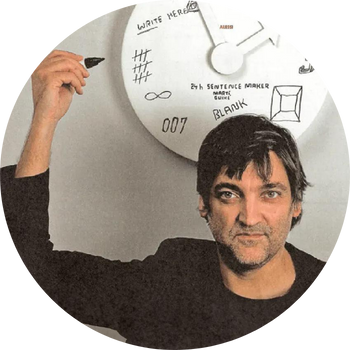Master of Arts in
Food Design
Course length
2 Academic Year
Start
January 2025
Language
English
Where
Milan
Food Design with Advanced Practice
This Master’s programme in Food Design offers you a unique and distinctive course of study, diverging significantly from programs that usually stem from gastronomy or food engineering origins.
It is rooted in design and invites you to reconceptualize the future of food through the lens of design, cultivating an innovative mindset, collaborating with professionals, and developing critical thinking and a problem-solving approach to what the food is and what surrounds the food: natural resources, edible objects, utensils, places, communication and packaging, experiences, events.
Features
The Master in Food Design develops the necessary skills to give a creative contribution to an increasingly growing sector, of which Italy constitutes one of the main benchmarks known worldwide. It is an opportunity not only for students holding a degree in design, marketing and communication, but also for managers and professionals working in the field.
The programme combines a focus on food-related markets with the design approach and methodologies. This creates a food designer who is able to manage the design:
- of processes, methods and spaces where products are processed, distributed and consumed;
- of food in terms of its aesthetics, communication and representation;
- of equipment and tools used to prepare and consume food;
- of all the communication activities implemented for the promotion of food products.
The academic activities encompass lessons, design workshops and seminars with the leaders of the food and agriculture industry and of the design field: entrepreneurs, managers, journalists, food critics, designers, architects, publishers and chefs. The structure of the course also comprises visits to food companies, concept stores, restaurants as well as important gastronomic fairs and events. After the end of the course, students will have an internship experience in a company, agency or firm working in the field.
The Master is held in collaboration with important companies and firms of the food industry.
The Master of Arts in Food Design with Advanced Practice is based on a learning strategy aimed at nurturing creative talent through the acquisition of professional knowledge and skills.
Its main objectives are:
- Provide you with the essential skills and methodologies to deal with the complexities of the global food industry.
- Encourage you to analyse and synthesise information from different sources, develop decision-making skills to solve complex creative problems, and create new concepts that respect the principles of food biodiversity.
- Stimulate your creativity in imagining innovative approaches to food in all its features.
- Provide you insights and methods for effective collaboration with food specialists, such as chefs, food engineers and farmers.
- Improve your knowledge and skills through real-world experiences, facilitated by internships in professional contexts.
To be admitted into the MA course, students must have a second class (2.2) honours or higher in art, design, or other creative disciplines from any recognised ISCED level 6 programme. Graduates in scientific disciplines, social sciences, and humanities can also be selected, as well as candidates who have previously gained significant professional experience in the field of the Master selected.
SPD also considers other relevant experience and/or the attendance of SPD Preparatory Courses. In addition, international students need an IELTS score of 6.0, with no component below 5.5.
After the successful completion of the Master’s programme, eligible students can earn the Master of Arts degree (180 UK credits, corresponding to 90 ECTS credits).
The Master of Arts Courses are accredited by Teesside University, SPD’s Educational Partner.
The 15-week Advanced Practice module is a unique opportunity to experience a first taste of the professional or academic life ahead of you and to test the knowledge and skills acquired in your studies.
During this semester, you have the option to choose from three opportunities:
- a professional experience in a real workplace environment (internship);
- an in-depth exploration of a particularly significant study topic through a research project within the school, in collaboration with a company (project work);
- an experience of personal and cultural growth through a period of study in a different institution (study abroad period).
The Major Project is the final individual research project that will allow you to investigate a specific topic at a high level, within a proposed research framework or project brief.
This project not only represents the culmination of your education but also marks the beginning of your professional career.
With the Major Project you will, indeed, have the opportunity to gain genuine project experience at the professional level, and when the project involves collaboration with companies, your ideas, if deemed of particular interest, may become the subject of further development that will make your resume competitive in the relevant industry.
After completion of the MA in Food Design with Advanced Practice at SPD, you are ready to embark on a career in various fields, including:
- Food Product Designer
- Food Communication Designer
- Food Design Researcher
- Food Event Designer and Manager Sustainable
- Food Consultant
- Food Experience Designer
- Food Entrepreneur


Martí Guixé
Martí Guixé formed in Barcelona and Milan as an interior and industrial designer. In 1994, living in Berlin, he formulated a new way to understand the culture of products. Martí started to exhibit his work in 1997, a work characterized by the search for new product systems, the introduction of design in food ambits, and presentation through performance. His non-conventional gaze provides brilliant and simple ideas of a curious seriousness.
He is based in Barcelona and Berlin and works as a Designer for worldwide companies such as Camper, Chupa-Chups, Desigual, Droog Design, and Watx, and has exhibited his creations at the MoMA in New York, the Design Museum in London, the MACBA in Barcelona, and the Centre Pompidou in Paris.













